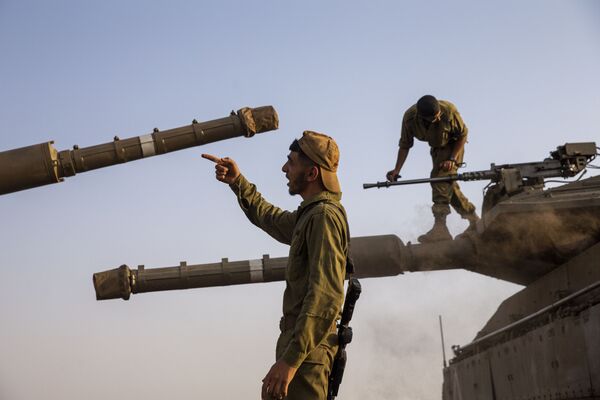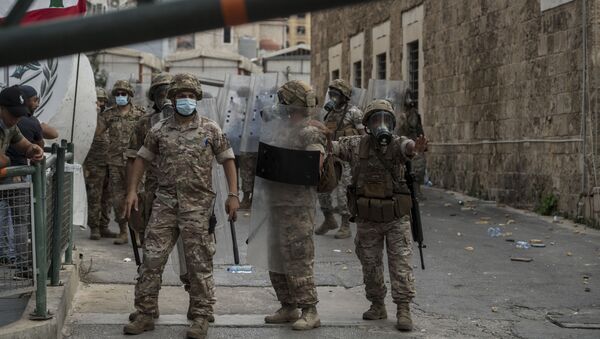The International Institute for Counter-Terrorism (IICT), an Israeli-based think tank, teamed up with two former Mossad officials, two ex-ambassadors, multiple think tank analysts, and Israel Defence Force intelligence officers for a 90-day "open poker" simulation on developments in crisis-hit Lebanon to try to predict future trends and implications for Israel.
The simulation, monitored by a reporter for The Jerusalem Post, saw players pick one of 12 different entities said to be engaged in Lebanese politics, including domestic actors such as Hezbollah and Lebanon's Christian community, but also foreign nations including Israel, the US, Syria, Germany, Iran, Saudi Arabia, France, and Russia, who then interacted with one another in real time based on potential developments.
According to The Jerusalem Post, the first scenario posited the creation of an emergency government by President Michel Auon in response to the dual blow caused by the coronavirus and the economic crisis, which saw Beirut defaulting on its debt in March in real life. The scenario pondered what would happen if Hezbollah was excluded from this emergency government, and its possible reaction.

The second scenario proposed a direct Hezbollah takeover of the existing government and the creation of a national salvation authority aided by Iran.
The third scenario posited a situation in which no political force proved strong enough to take the reins to lead the country out of crisis, sparking chaos akin to that which started the Lebanese Civil War (1975-1990), which, incidentally led to an Israeli invasion and long-term occupation of the southern part of the country beginning in 1982.

The scenarios also included modeling on how events might unfold in the case of a limited or full-blown military conflict between Hezbollah and Israel, including missile attacks or a hypothetical Hezbollah invasion of northern Israel for some reason.
Boaz Ganor, the IICT's director, told the JP that "all three [scenarios] could become reality", and urged the government to "be ready for all three possibilities – and prepare itself the best that it can for each one".
He added that many of the predictions made in the exercises have proven to have real-world equivalents, with the consequences of scenarios materialising in reality "even faster than in the simulation".
Long-Term Tensions
Israel and Lebanon have faced decades of poor relations, with the countries fighting numerous wars and Tel Aviv continuing to occupy a 25 square kilometre strip of Lebanese territory known as the Shebaa Farms. The countries also face a standoff over drilling rights for oil and natural gas in the eastern Mediterranean. Israel has been engaged in a decades-long conflict with Hezbollah, carrying out repeated airstrikes against the militant group, with Hezbollah hitting back via rocket attacks into northern Israel and hit-and-run skirmishes in border areas. Hezbollah militants waged a 34-day war with the Israeli military in 2006 before the United Nations brokered a ceasefire, with 121 Israeli troops, 250 Hezbollah fighters, and over 1,000 civilians killed in the conflict.
On Saturday, Prime Minister Michel Aoun said he would not rule out a peace deal with Israel one day if existing "problems" were solved first.
The IICT's simulation comes in the wake of the 4 August ammonium nitrate explosion in the port of Beirut, which left at least 171 people dead and roughly 6,000 injured, and caused substantial damage to much of the city. On 10 August, after several days of protests, the government of Prime Minister Hassan Diab resigned. Diab said the blast was caused by systemic corruption which paralysed governance. President Aoun said he was not ruling out external interference and foul play, including a possible bomb blast or missile attack. US and French negotiators have joined the investigation, despite Aoun's earlier suggestion that the probe remain an internal matter. Hezbollah urged the probe to be carried out by the Lebanese Army owing to its respected place among all segments of Lebanese society.





